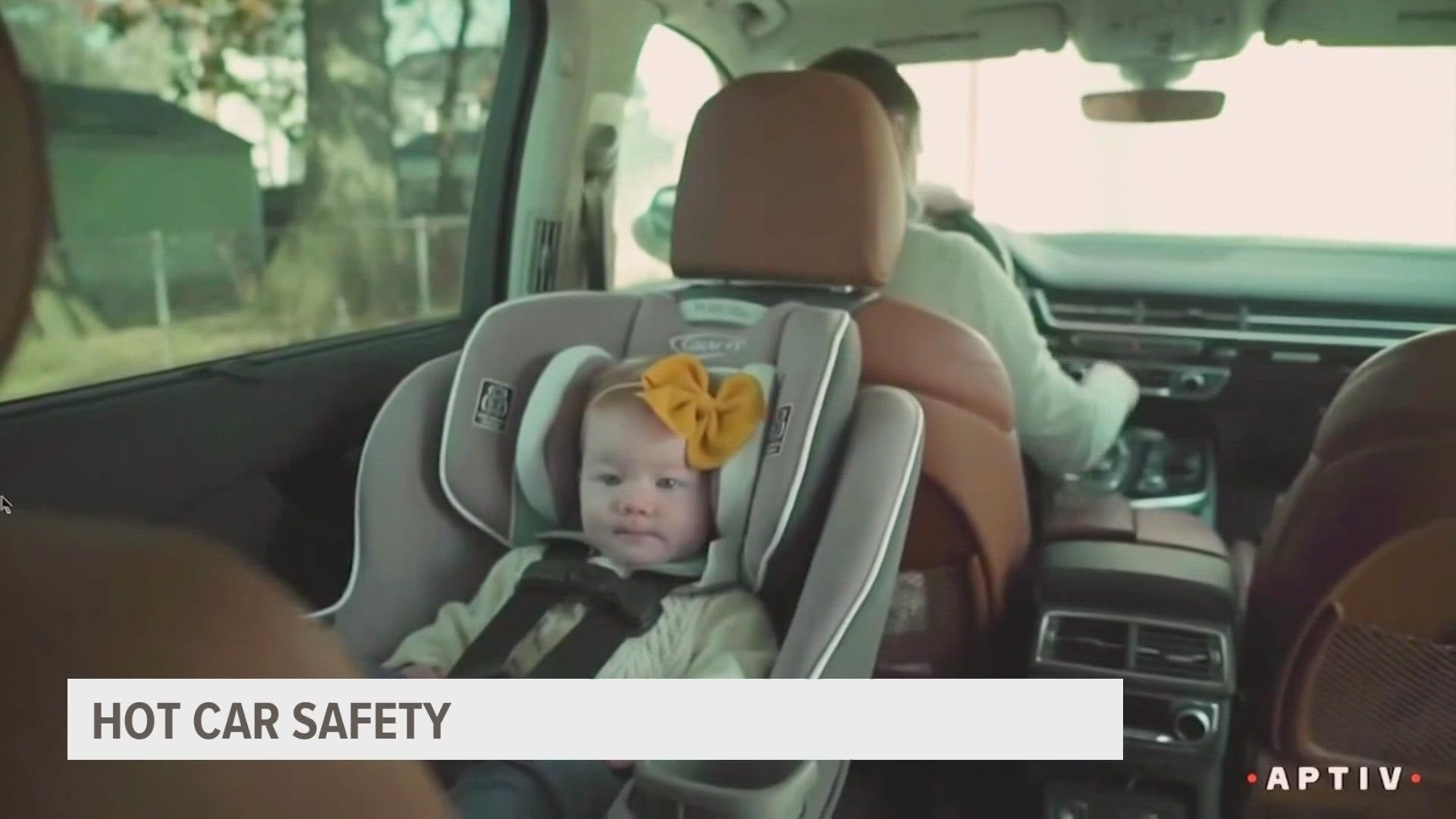DES MOINES, Iowa — As temperatures outside begin to heat up, law enforcement officials want to remind drivers to check their back seats for children or animals before they leave the car.
According to National Highway Traffic Safety Administration, a child's body temperature rises three to five times faster than an adult's.
From 1998 to now, seven children have died in hot cars in Iowa, according to the National Safety Council.
Iowa State Patrol Trooper Ryan DeVault said when it's hot out, parents and all drivers need to be more vigilant of what they leave in their backseats.
However, DeVault said, if a person is walking by a vehicle and notices a kid or animal in the backseat and it's hot out, a person does not have the right to automatically break the window.
There are some tests that a passerby should do first, he noted, such as putting a finger on the vehicle to check its temperature. From there, examine the child to see if they look red or if they are sweating or panting. If that is the case, call 911, and law enforcement will take over.
DeVault said if law enforcement is not close and a person still feels it necessary to break a window, then they should go ahead.
While there is no specific law in Iowa that specifically permits the breaking of a window to rescue a child in a hot vehicle, there is other legislation that may apply to the situation.
"In Iowa, we have a Good Samaritan Law that basically states if a good samaritan is rendering aid to somebody [who is] in need of emergency aid, they are not held civilly liable for any damages," DeVault said.
However, attorney Bobby Rehkemper said though the Good Samaritan Law can protect some, it won't necessarily protect everyone.
If the person who broke the window's actions were found to be unwarranted or unreasonable, they could get sued. This means if the child or animal they claimed was in danger actually wasn't.
The person could be charged civilly, in which they would be required to cover the cost of the damages, or they may be charged with criminal mischief, Rehkemper said.
"The person bringing the action would have to establish the individual [who broke the window] intentionally [did it]. Or in the civil case, negligently caused damage to their property."
Rehkemper said the best way to avoid these type of situations is for people to just call 911 right away if they notice something is off.

